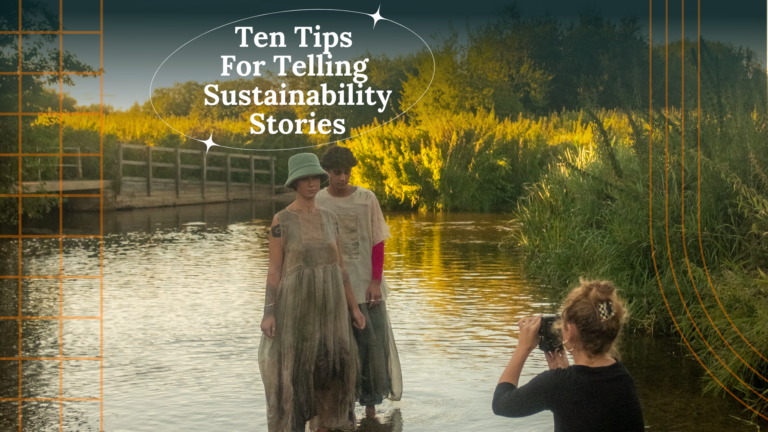The negative effects of greenwashing
The consequences of greenwashing are wide ranging on a number of levels. But, due to the nature and deceptiveness of the practice, the empirical research on these consequences is limited. In this blog we consider the research and the consequences it analyses.
Confusing the consumer
A number of studies have shown that greenwashing has significant effects on consumers’ views and perceptions on the integrity of an organisation.
Consumers who have been a victim of greenwashing subsequently have distrust in green claims, cautiousness in future purchasing decisions and also spread the word to close friends and other people they potentially could be susceptible to misleading claims (Lim et al. 2013). This finding is also supported by a study by Chen and Chang (2013) who researched Taiwanese electronics consumers and concluded that greenwashing has a negative influence on perception of risk, creates customer confusion and reduces green trust of environmental claims made by an organisation.
Green confusion and green trust are important to note. Green confusion can be described as a “consumer’s failure to develop a correct interpretation of the environmental features of a product or service during the information-processing procedure” (Turnbull et al., 2000).
Deceptive and ambiguous ads lead to green confusion, creating negative perceptions about a product’s environmental claims and features. Thus affecting purchasing decisions for some and creating lack of trust between consumers and environmental organisations. (Pancer and McShane 2013). (Lim et al. 2013 ) (Chen and Chang 2013) (Turnbull et al., 2000) (Wu and shen 2013) (Oreskes, & Conway 2010 )
Negative effects on corporations
On a macro level, there is no evidence that greenwashing improves an organisation’s performance indicators. In fact, a study from Du (2015), which analysed firms in the stock market in China, found that greenwashing has a negative relationship with those companies’ cumulative abnormal returns. And, Wu and Shen (2013) found a positive relationship between corporate social responsibility and financial performance in banks in a study in 22 different countries. But this relationship was not present for banks that had greenwashed.
Further to this, a study of Canadian firms, in pollution high sectors, found that poor environmental actions, in combination with greenwash, have negative effects on financial performance. (Walker & Wan, 2012).
These studies show that greenwashing has little benefit for businesses and large organisations. However, it is hard to establish causal effects due to the complexity and variables involved.
Greenhushing
It’s acknowledged the threat of being called out for greenwashing can lead to firms not communicating their green claims or sustainability actions to their customers or stakeholders at all. This has been coined as greenhushing in the sustainability sphere and stems from businesses fearing backlash from their environmental claims. (Coles et al. 2017).
A study from Font, Elgammal, and Lamond, 2017 which analysed websites for businesses in the Peak District found that only 30% of these businesses mentioned the sustainability actions they practised. Whereas, the majority of websites focused on customer experiences and benefits of a holiday in the landscape and downplayed complex issues and sustainability to reduce customer guilt.
Negative impact of the environment
If consumers are thinking their buying decisions are helping the planet, when in fact they are being lied to, then environmental degradation and climate change threats will continue to worsen. For example, in 2008, the advertising standards authority found that the Malaysia Palm Oil Council actioned a TV advertisement that stated;
“Malaysia Palm Oil.
Its trees give life and help our planet breathe, and give a home to hundreds of species of flora and fauna.
Malaysia Palm Oil.
A gift from nature, a gift for life.”
In fact, research has shown that palm oil plantations cause many adverse effects, including habitat loss, pollution from burning and clearing land, species extinction and many other environmental damaging effects. (Gatti et al 2019). Therefore the ASA stated “there was not a consensus that there was a net benefit to the environment from Malaysia’s palm oil plantations“ and had the advert removed. (Dahl, 2010)
The impact on society
Greenwashing can also disrupt, distract and take the spotlight away from real action which is helping the environment and efforts being made to tackle climate change. Even if greenwashing does not deceive everyone, it can delay responses and collective action, which Oreskes, & Conway, (2010) conclude is what has happened with climate change litigation.
The positives
Although greenwashing is generally viewed as detrimental, a few scholars have shown it can have some positives. Bowen and Lyon, Montgomery (2015) state that greenwashing may not all be negative, and that depending on the context the increased “green talk” may be helpful as it highlights sustainability in society.
Other resources on Greenwashing we have:
5 ways individuals can stop companies from greenwashing
What is Greenwashing and how to spot it?
What Is The Green Claims Code And What Does It Mean For Your Business?
Check out our Blog HERE
Follow us on socials:
References:
Turnbull, P. W., Leek, S., & Ying, G. (2000). Customer Confusion: The Mobile Phone Market. Journal of Marketing Management, 16, 143-163. https://doi.org/10.1362/026725700785100523
Lim, W.M., Ting, D.H., Bonaventure, V.S., Sendiawan, A.P. and Tanusina, P.P., 2013. What happens when consumers realise about green washing? A qualitative investigation. International journal of global environmental issues, 13(1), pp.14-24.
Chen, Y. (2010). The drivers of green brand equity: Green brand image, green satisfaction, and green trust. Journal of Business Ethics, 93, 307–319.
Wu, M.W. and Shen, C.H., 2013. Corporate social responsibility in the banking industry: Motives and financial performance. Journal of Banking & Finance, 37(9), pp.3529-3547.
Oreskes, N., & Conway, E. M. (2010). Merchants of doubt: How a handful of scientists obscured the truth on issues from tobacco smoke to global warming. New York, NY: Bloomsbury.
Pancer, E., & McShane, L. (2013). Gauging greenwashing and questioning quality: The unintended effects of environmental claims on perceptions of product effectiveness. Advances in Consumer Psychology, 5, 150.
Du, X., 2015. How the market values greenwashing? Evidence from China. Journal of Business Ethics, 128, pp.547-574.
Walker, K., & Wan, F. (2012). The harm of symbolic actions and green-washing: Corporate actions and communications on environmental performance and their financial implications. Journal of Business Ethics, 109, 227-242.
Coles, T., Warren, N., Borden, D.S. and Dinan, C., 2017. Business models among SMTEs: identifying attitudes to environmental costs and their implications for sustainable tourism. Journal of Sustainable Tourism, 25(4), pp.471-488.
Font, X., Elgammal, I. and Lamond, I., 2017. Greenhushing: the deliberate under communicating of sustainability practices by tourism businesses. Journal of Sustainable Tourism, 25(7), pp.1007-1023.
Gatti, R.C., Liang, J., Velichevskaya, A. and Zhou, M., 2019. Sustainable palm oil may not be so sustainable. Science of the Total Environment, 652, pp.48-51.
Dahl, R., 2010. Green washing: do you know what you’re buying?.
De Jong, M.D., Harkink, K.M. and Barth, S., 2018. Making green stuff? Effects of corporate greenwashing on consumers. Journal of business and technical communication, 32(1), pp.77-112.
Lyon, T.P. and Montgomery, A.W., 2015. The means and end of greenwash. Organization & Environment, 28(2), pp.223-249.




















